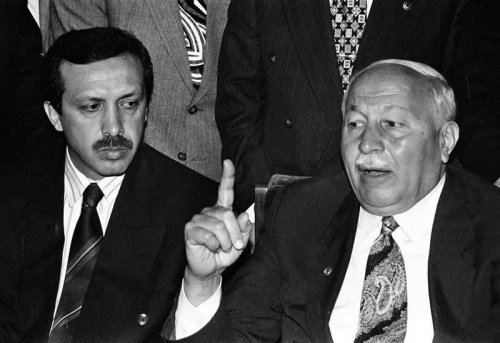Zenonas Tziarras diagnoses symptoms of Lausanne Syndrome in Turkish foreign policy.
For over a century Sèvres Syndrome has been invoked to interpret Turkey and especially its foreign and security policies. The 1920 treaty was never accepted by Mustafa Kemal’s national movement and was eventually replaced by the much-improved Treaty of Lausanne in 1923. The unrealized provisions of Sèvres nonetheless afforded a traumatizing vision of a rump state occupying a small fraction of the pre-1914 Ottoman Empire. Symptoms of Sèvres Syndrome thus include fear of territorial dismemberment and suspicion towards the machinations of the western powers.
Invoking the tragedy of Sèvres and celebrating the victory of Lausanne became integral to the Kemalist nation-building project. As such, Sèvres Syndrome largely shaped the security perceptions and strategic preferences of the new Republic, which became isolationist and introverted, suspicious of external powers and cautious of external adventures. Meanwhile, certain parallel dynamics within Turkish politics and society gave rise to another syndrome: Lausanne Syndrome, the subject of my recent book.
Like Sèvres Syndrome, Lausanne Syndrome is an ideational and psychological phenomenon that emerged in the early 1920s among conservative and nationalist segments of Turkish society that opposed the abolition of the sultanate and the caliphate. More importantly, Lausanne Syndrome reflected these groups’ disappointment at the Treaty of Lausanne (1923). Although significantly better than Sèvres, they saw Lausanne as a historic, painful and unjust compromise, sacrificing far too much of those territories (including northern Syria and Iraq) claimed as inalienable Turkish lands by the 1920 National Pact (Misak-ı Milli).
The anti-Lausanne sentiments of the early 1920s survive to this day in political-ideological currents associated with nationalist-Islamist actors and groups. One such group was the National Outlook Movement (Milli Görüş) of Necmettin Erbakan, out of which today’s governing Justice and Development Party (AKP) emerged. Based on popular as well as elite beliefs within the current Turkish leadership, as well as the political-Islamic movement, one could argue that the AKP is a distant descendant of the Second Group (İkinci Grup). This political group formed in 1921 in the Grand National Assembly of Turkey, soon after its establishment (1920), and opposed Kemal’s First Group, including on matters pertaining to the Lausanne negotiations, the sultanate and the caliphate.
Lausanne Syndrome incorporates the insecurities of Sèvres Syndrome, not least by presenting Lausanne as a new “Sèvres Treaty”. It nonetheless constitutes a distinct and quite different paradigm.
Lausanne Syndrome exists both at the level of elite beliefs and perceptions as well as among the collective assumptions and expectations regarding national security that affect decision-making, either by driving or constraining certain policies. The strategic culture fostered by Lausanne Syndrome indicates a more assertive and revisionist Turkish foreign policy: one that wants to reclaim the glamour and influence of the Ottoman Empire on an international level and restore a more conservative state of affairs domestically. It is thus no surprise that Erdoğan wants to inaugurate a “New Turkey” in 2023, at the centenary of the Lausanne Treaty. And if the past few years are any indication, the New Turkey will be more disconnected from its Kemalist past, but no less authoritarian.

From this perspective, (foreign) policy under the AKP and Erdoğan is partly a product of a historically revanchist but also counter-revolutionary shift from the previously dominant Kemalist paradigm. In so far as the ideological aspect of this policy is based on myths and metaphysical narratives, Turkish strategy becomes hostage to domestic political-ideological imperatives, and sometimes flirts with irrational policy choices. These tendencies feed both the country’s domestic polarization as well as regional power shifts.
It is worth noting that the influence of Lausanne Syndrome became even more salient after the failed coup of 2016, as Erdoğan concentrated most of the decision-making power in his own hands. The state of emergency (2016-2018) and constitutional changes (voted in 2017 and came into force in 2018) allowed the establishment of a presidential system with Erdoğan as super-president. It was around the same time that the Turkish President started to openly question the geopolitical status quo brought about by the Lausanne Treaty and repeatedly call for its revision or updating.
No single ideational or psychological phenomenon can explain a country’s foreign policy in its entirety. Lausanne Syndrome nonetheless captures a dominant framework and set of perceptions that shape foreign policy outcomes, assisted by a centralized political system and the absence of checks and balances. Such discourses don’t just serve populist objectives, they inspire corresponding actions.
FEATURE IMAGE: FOUR MEN IN FEZES BY ALEXIS GRITCHENKO, SOURCE: TRTWORLD
The article was first published on The Lausanne Project.

